Movies like Die Hard, Cobra, and Total Recall might be known for their larger-than-life action sequences but their characters and themes are actually derived from some iconic novels. Often, classic literature has served as inspiration for drama movies but following the 1970s and 1980s, even the action genre began drawing on books.
In cases like The Running Man and Blade Runner, the original authors like Stephen King and Philip K Dick were already well-known figures. But with adaptations like First Blood and Die Hard, the novels and novelists saw their popularity increasing more than before.
10 Die Hard
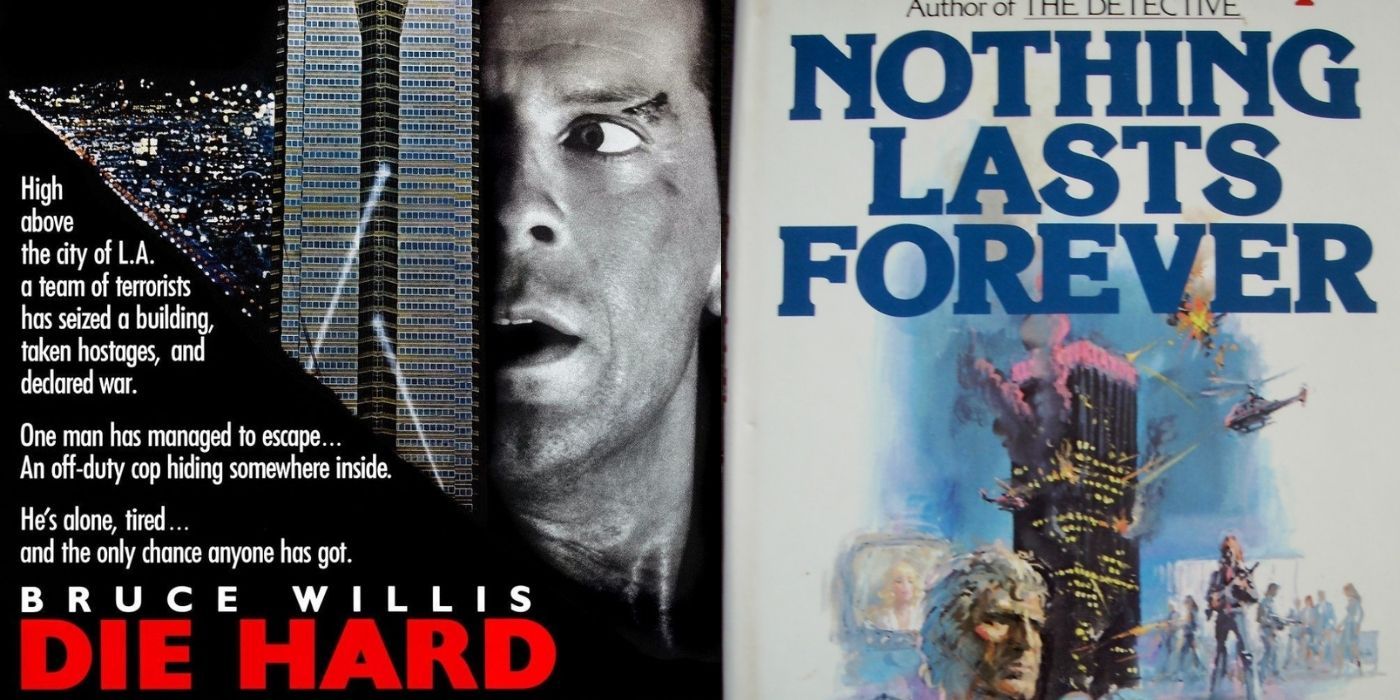
Die Hard needs no introduction for fans of '80s action flicks. Not only did it skyrocket Bruce Willis' blockbuster career but it also redefined the notion of an action hero in an era that was otherwise dominated by actors like Sylvester Stallone and Arnold Schwarzenegger.
Not many would know but this action classic was actually inspired by the novel Nothing Lasts Forever by Roderick Thorp. The book in itself was a sequel to Thorp's The Detective that was earlier adapted as a movie starring Frank Sinatra. While many of Die Hard's action scenes are original, Thorp too filled a healthy dose of action in his writing such as the scene involving the protagonist dropping a C-4 charge down an elevator shaft and then leaping from the roof.
9 The Running Man (1987)
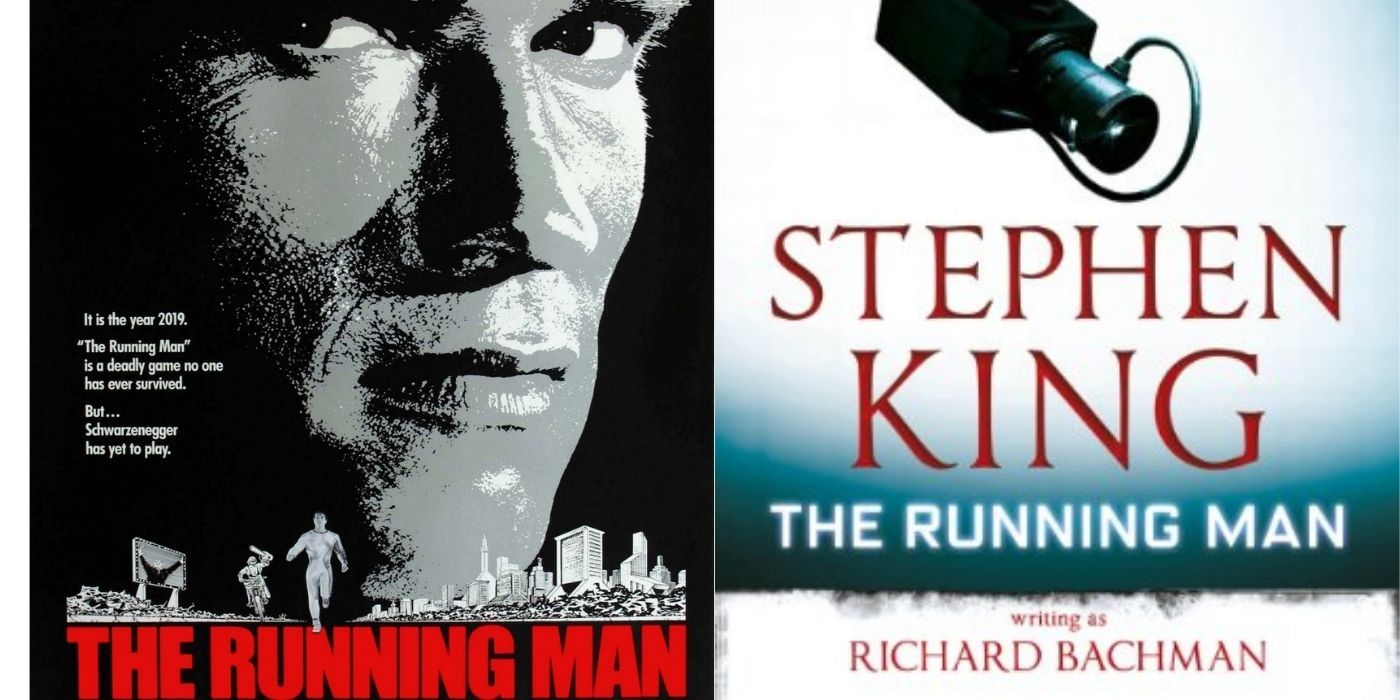
Before The Hunger Games and Squid Game, The Running Man was the ultimate battle royale story. Starring Arnold Schwarzenegger in the lead role, the movie revolved around a dystopian game show that pits the working class in deathmatch for the entertainment of the rich.
Based on the novel of the same name, the source material was authored by Richard Bachman, a temporary pseudonym used by Stephen King. The author is, of course, no stranger to the world of cinema with Stephen King film adaptations dominating genres like thriller and horror. King, however, didn't find many similarities in the 1987 movie and even had his name removed from the pre-release marketing.
8 Total Recall (1990)
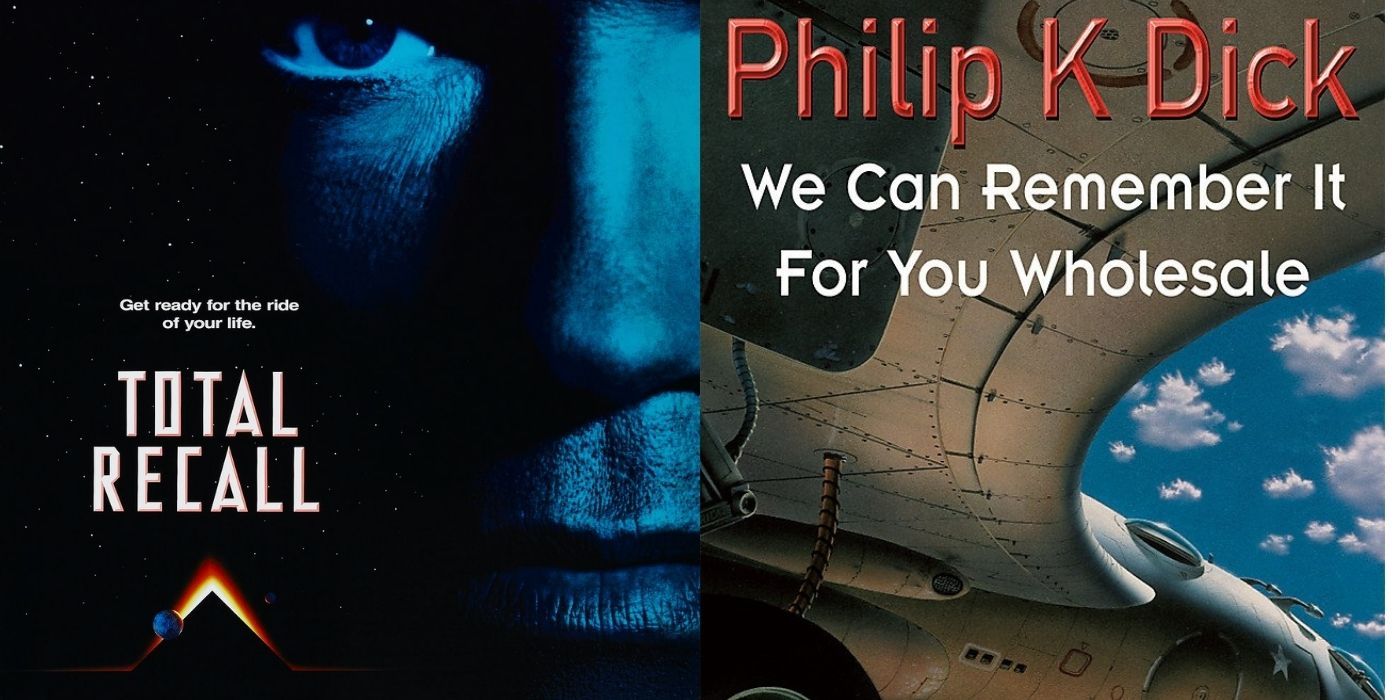
As a construction worker receives memory implants of a fake scenario as a Martian agent, he realizes that he might actually have a different purpose in life. The movie blends interesting themes of memory alteration and technological manipulation along with some of Arnold Schwarzenegger's best over-the-top fight scenes.
Despite the flashiness of the movie, Total Recall is an adaptation of a more theoretical and toned-down story called We Can Remember It For You Wholesale by the sci-fi legend Philip K Dick. The concept of implanting real and fake memories is the one major element that is common between the story and the movie.
7 Blade Runner (1982)
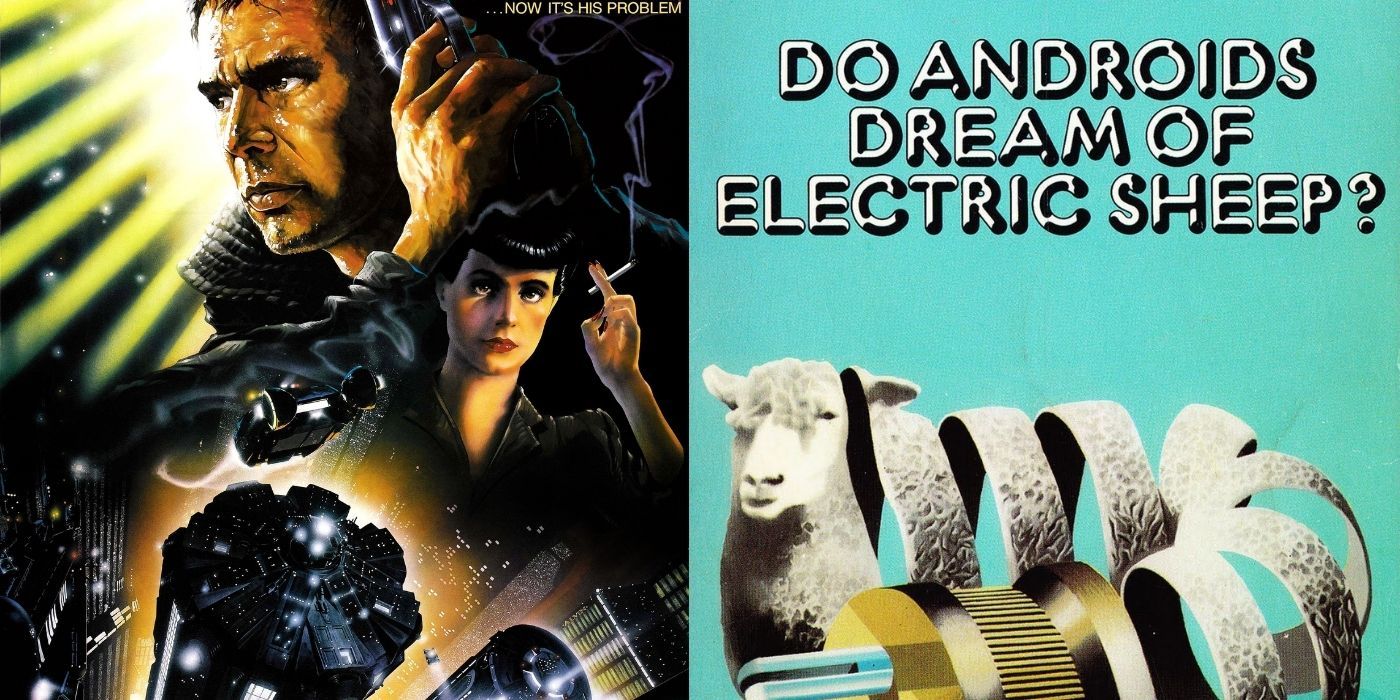
A landmark work of cyberpunk sci-fi, Blade Runner is supported by a neo-noir mystery and philosophical open-ended ideas. Set in a dystopian 2019, the movie deals with a cop as he is tasked with capturing a group of fugitive "replicants".
True to its profound nature, the Ridley Scott-directed movie takes major inspiration from the classic Philip K Dick novel Do Androids Dream of Electric Sheep. Both the movie and the novel deal with themes of existentialism and genetic engineering along with religious/philosophical motifs. Unfortunately, Dick could never watch the movie in his life as he died a few months before the release.
6 First Blood (1982)
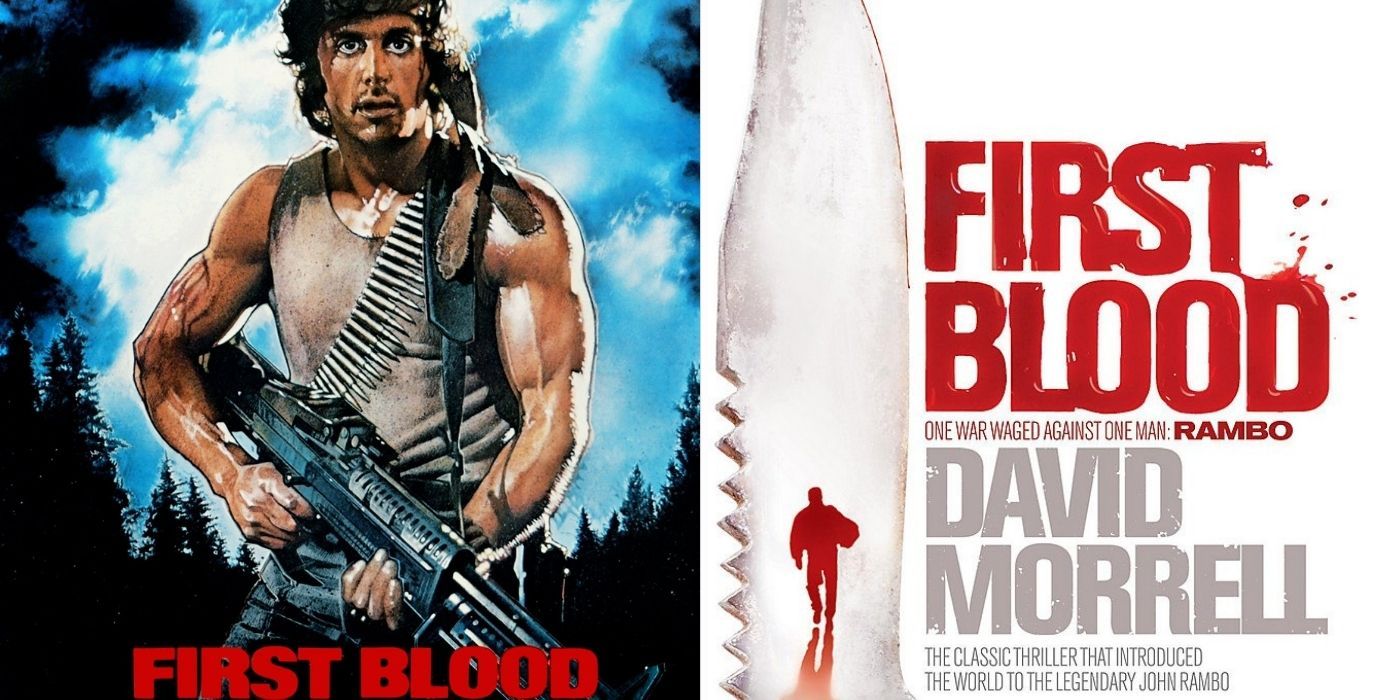
While the Rambo franchise transformed into a series of inter-border wars being waged by a "one-man army", the franchise had humble roots with First Blood. Sylvester Stallone's first movie as Vietnam War veteran John Rambo found him dealing with PTSD and corrupt cops as he is unwillingly dragged into a cycle of violence yet again.
David Morrell's novel First Blood served as inspiration for the movie. Even though the latter did include some iconic stunt sequences, it pretty much captured the protagonist's sense of loneliness and trauma that was present in the book. Stallone also contributed to the screenplay making Rambo a more sympathetic character as opposed to the novel. Morrell has since been associated with the franchise, authoring the official novelizations of First Blood Part II and Rambo III.
5 Death Wish (1974)
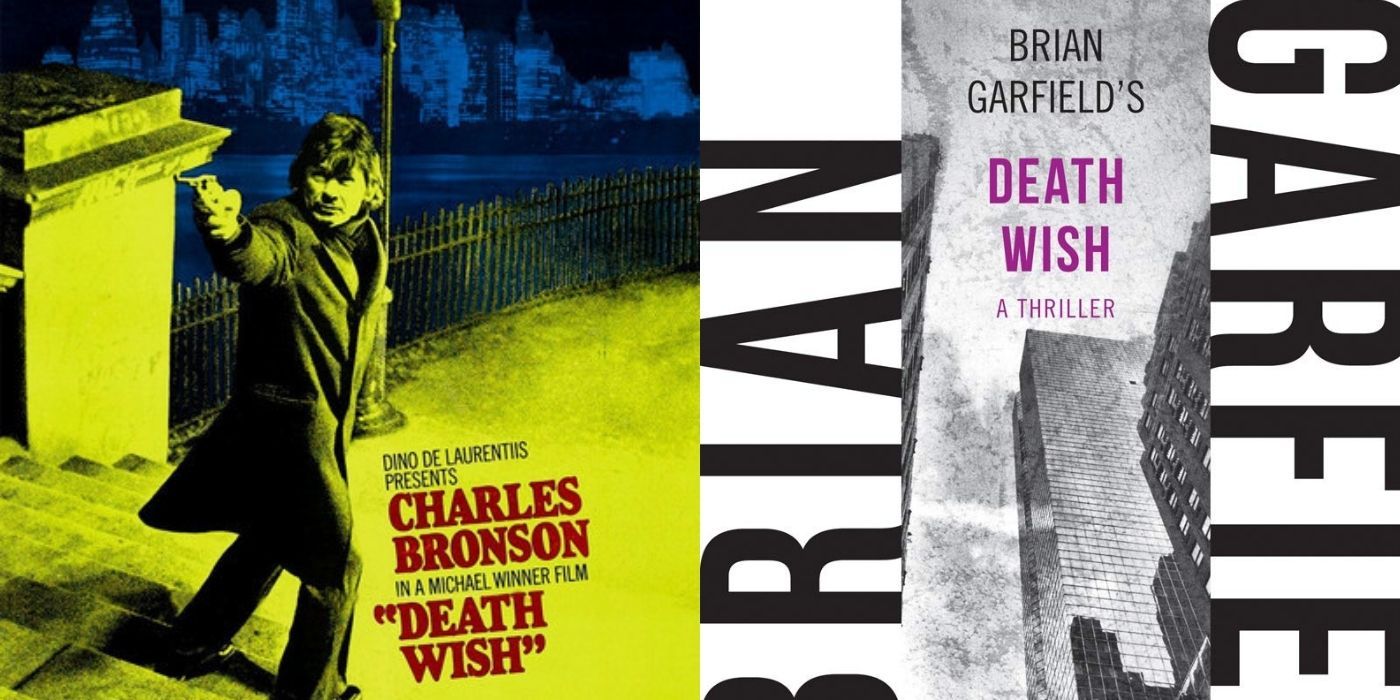
Death Wish and its brand of street vigilantism will be questionable by today's standards but back then, it was a significant screen credit for Charles Bronson, a maestro of iconic "tough guy" roles. The movie received sequels and remakes but none of them lived up to the legacy of the original which was adapted from Brian Garfield's novel of the same name.
The plot is virtually similar, revolving around a man who resorts to punishing criminals after his wife is murdered in a home invasion. The one major difference is that while the movie seems to glorify vigilantism, the novel has a redemptive attitude to denounce violence in all forms. The non-fiction book The Myth of the American Superhero adds that Garfield was so disappointed with the movie that he wrote a sequel called Death Sentence that showed how even excessive vigilantism can be a threat to society.
4 Cobra (1986)
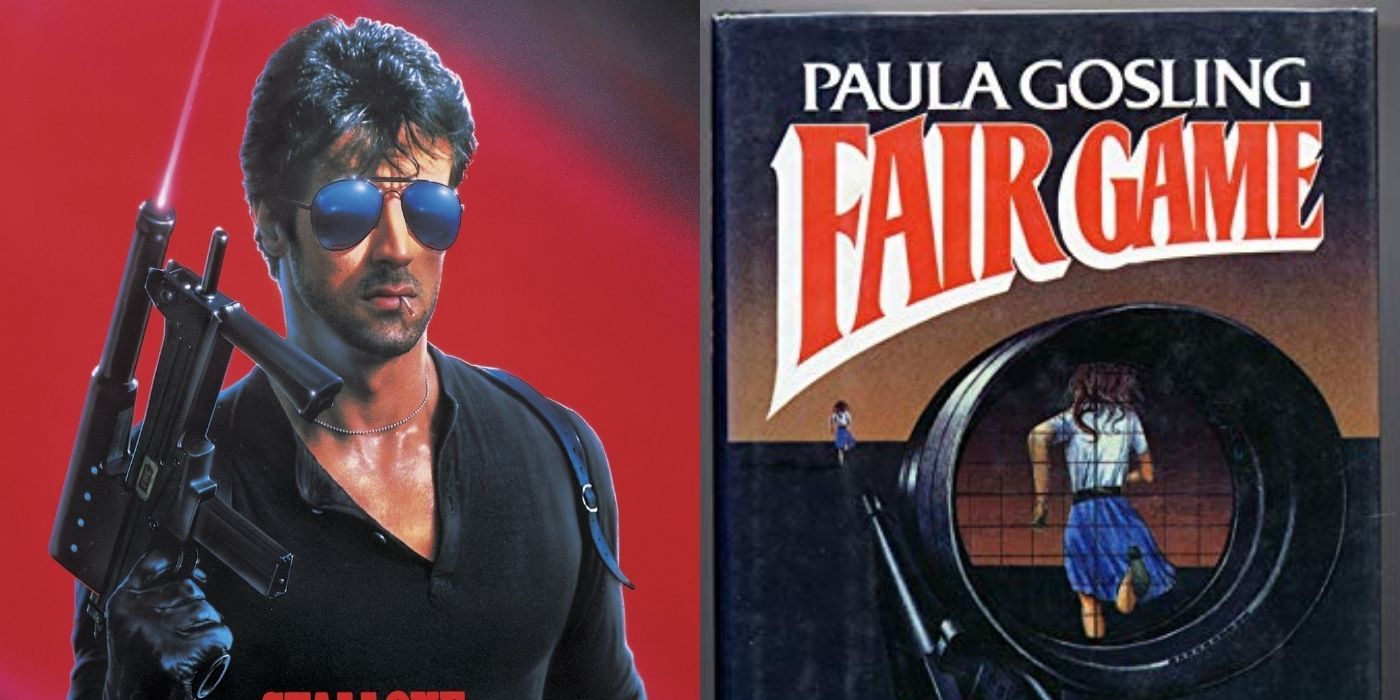
A quintessential action movie from the '80s, Cobra received unfavorable reviews but has still emerged as a public favorite over the years. The premise is simple as a cop called Marion "Cobra" Cobretti pursues a murderous cult.
The movie bears a few similarities with Paula Gosling's thriller novel Fair Game even though leading man and screenwriter Sylvester Stallone made some significant changes to the story. As Den of Geek reports, Stallone initially wanted to write Beverly Hills Cop as a serious, violent action film. But when the plan didn't fall through and it became an action comedy instead, Stallone channeled his vision into Cobra, blending it with Fair Game's premise.
3 Conan The Barbarian (1982)
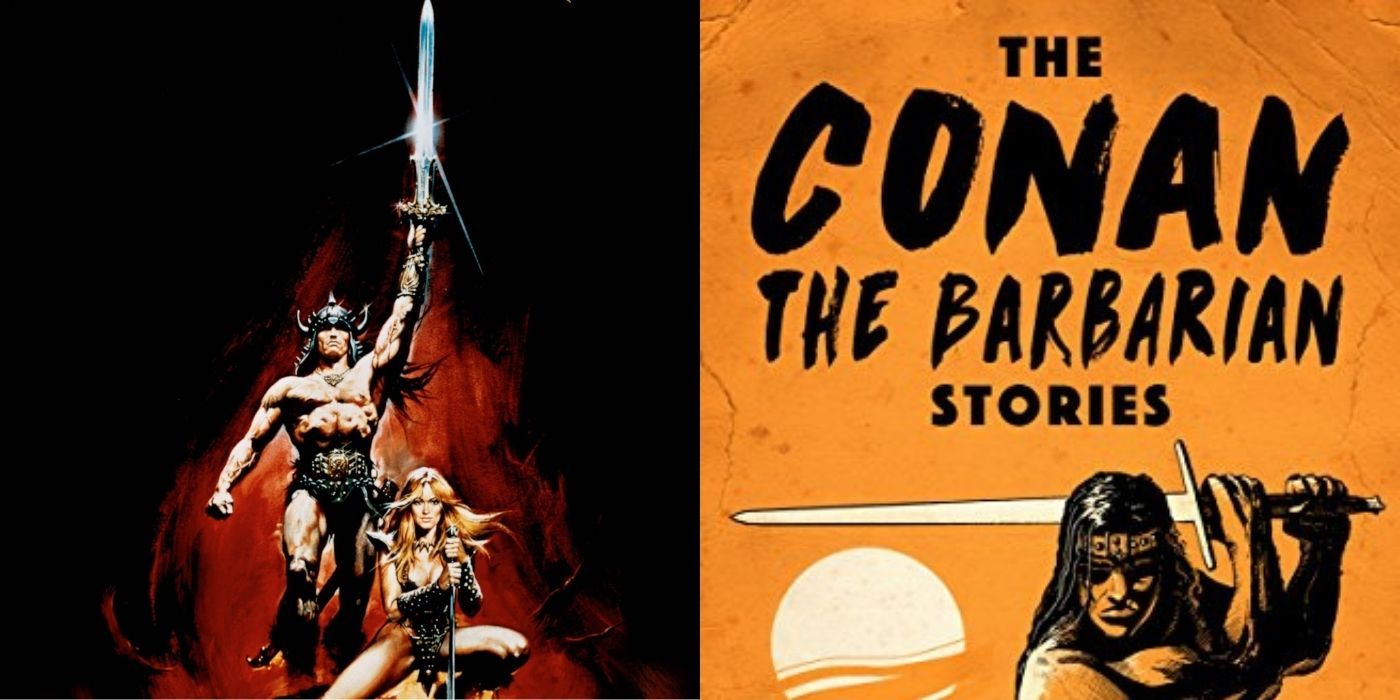
The movie that launched Arnold Schwarzenneger as an action star is a classic in the swords-and-sandals genre, setting a benchmark for other movies in the genre. As the barbarian warrior seeks revenge for his parents' deaths, he comes in conflict with a supernatural cult.
Instead of just one short story or novel, the movie is actually inspired by multiple writings of Robert E Howard. While Howard authored a plethora of adventures around the titular character, it is to be noted by readers that some of the writer's observations would not age well in modern times. Still, the larger-than-life fantasy elements of these books were justifiably brought to screen with this 80s classic movie.
2 Die Hard 2 (1990)
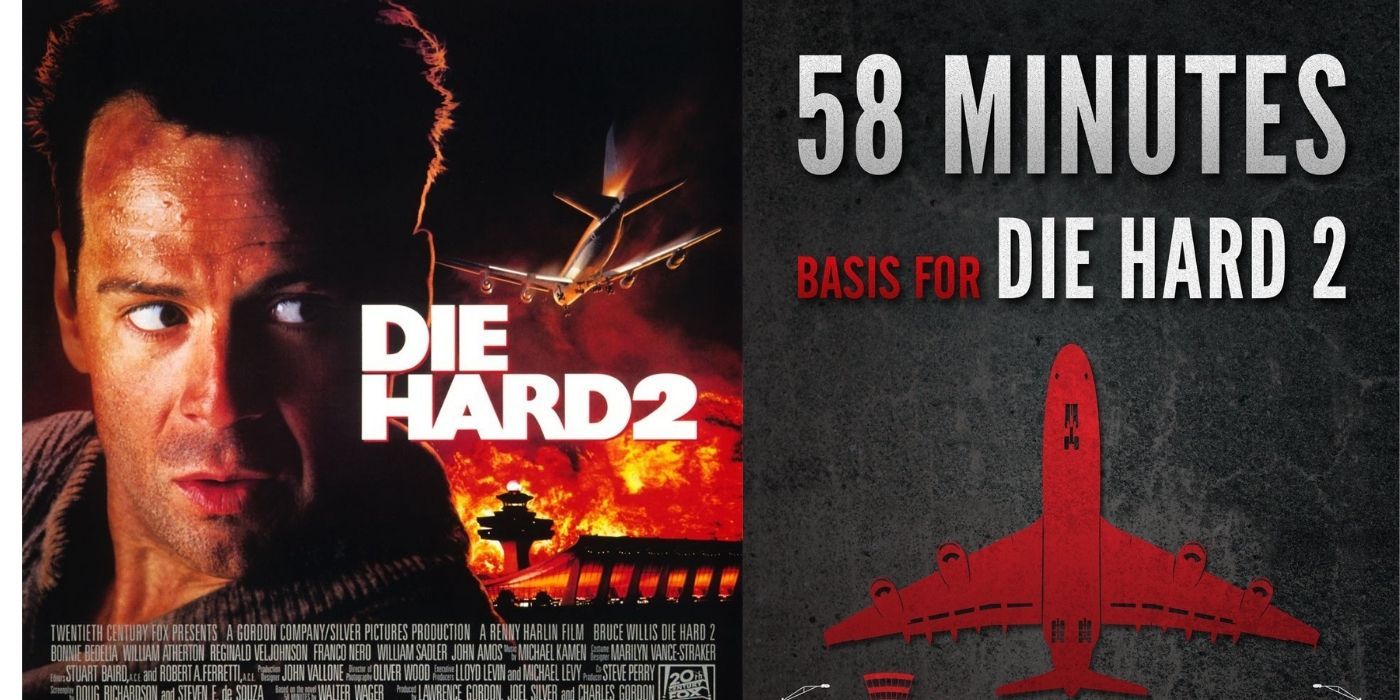
Much like its predecessor, Die Hard 2 is also a novel adaptation, borrowing influences from 58 Minutes by Walter Wager. Much like the movie, the novel deals with a situation where terrorists take over an airport and all incoming flights face the threat of running out of fuel and crashing.
The one major difference is that instead of John McClane rescuing his wife, the protagonist of 58 Minutes embarks on a race against time to save his daughter. As the novel's title suggests, there is also an added time constraint as the terrorists give a deadline of 58 minutes following which chaos would ensue.
1 They Live (1988)
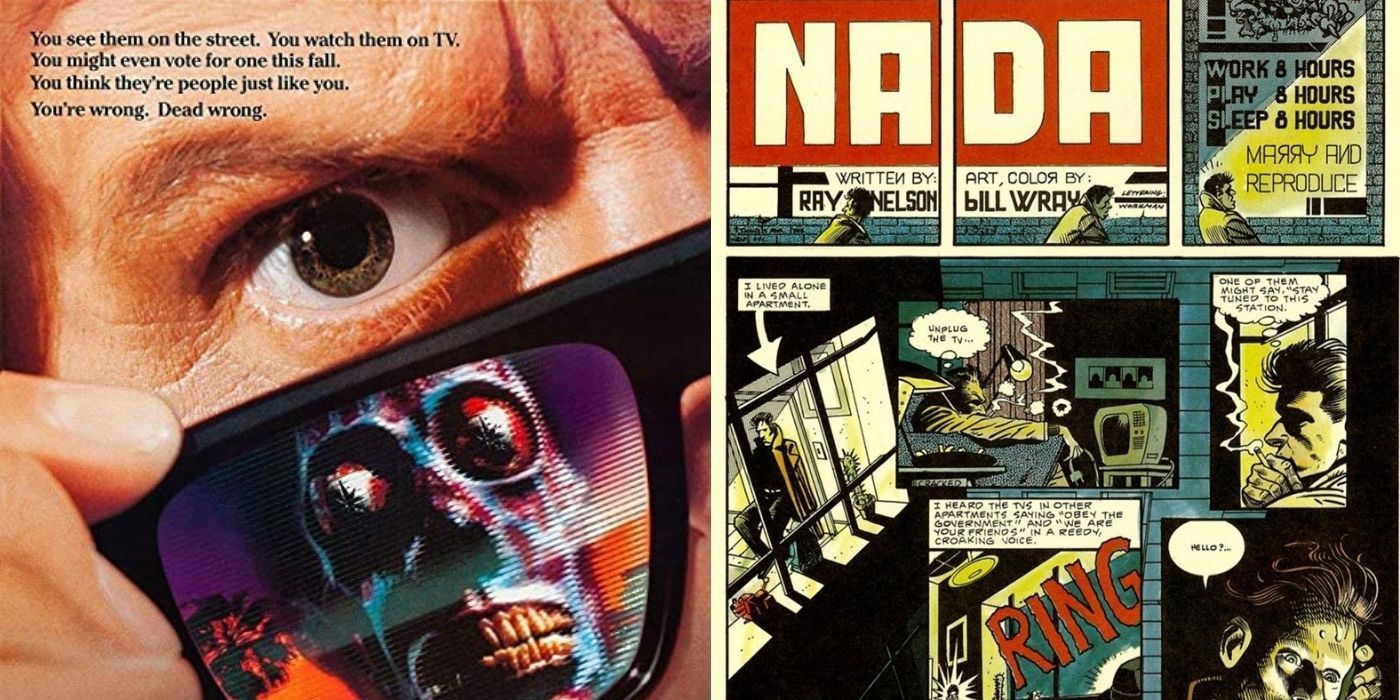
John Carpenter's sci-fi action movie They Live was a satirical look at social inequality as the protagonist finds a pair of sunglasses that lets him see the alien form of the upper classes of society. Chaos ensues he discovers their true identities and purpose of wielding all the power in the world.
The cult classic actually takes inspiration from the short story Eight O'Clock in the Morning authored by Ray Nelson, retaining elements related to world invasion and the rich-poor divide. The story was first published in The Magazine of Fantasy & Science Fiction before Nelson adapted it as a comic called NADA and got it published in the comic book anthology Alien Encounters. Interestingly, Nelson also went on to collaborate with Philip K Dick whose work was adapted multiple times in cinema.
from ScreenRant - Feed https://ift.tt/3IQ0V0M

0 Comments